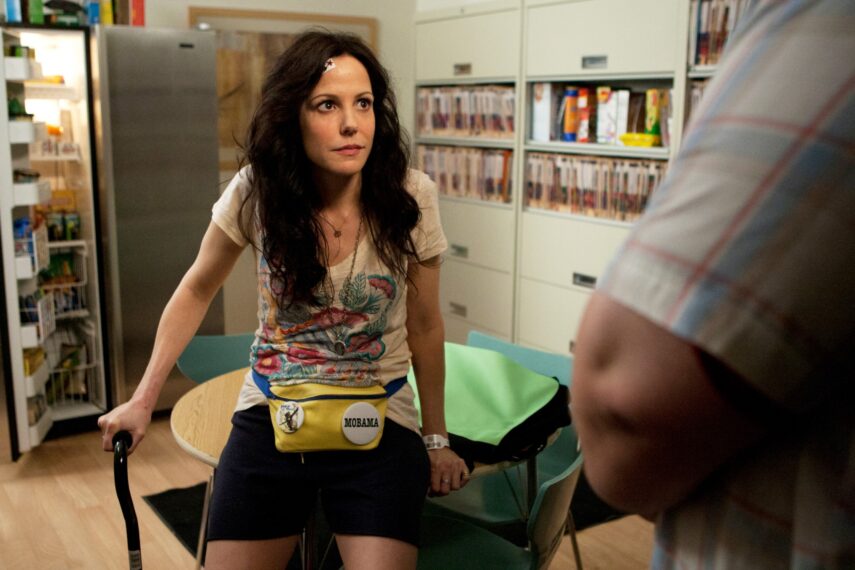Tottenham ran hard yards on their tour of Asia. First under a burning Japanese sun and then in South Korea’s airless heat. The players were pushed to their limits.
By the tour’s final days, Ange Postecoglou was beginning to wilt, too. When The Athletic meets him, at the top of a hotel that steepled into the clouds above Seoul, his voice is softer and raspier than usual, worn thin by two weeks on the training pitches and in front of the local media. Advertisement “It’s been a good trip,” he says.

“Sometimes they can drag a bit, but everything has run seamlessly. Last year it was chaos. Games were getting cancelled and the training facilities were not great, but this year that stuff’s been good.
It’s been a good camp.” He seems to enjoy the grind and appreciate what it reveals. After all, Postecoglou is a searcher.
In the past, he has palmed away questions about Champions League qualification and the more literal truths of the league table, directing focus back towards the emotional readiness of his squad. Who is really invested? Who has faith in what he is trying to achieve? Those truths are found on the training ground. They tend to reveal themselves especially fast in 35C (95F) heat.
“The way we play is very demanding,” Postecoglou says. “So you’re looking for how much you really have to push players — and the less you feel you need to push them, the more you know they’re actually buying into it. Some of that is just the way they talk and their behaviour around the place.
I’m looking at how they’re embracing what we’re trying to do from a football perspective, but also beyond that. “You need to have a certain kind of mindset and a certain bravery to do what we do,” he says, “and it’s a fine line between somebody doing what they’re told and somebody doing something they really believe in.” In the background, players shuffle past in flip-flops to graze at a nearby buffet.
Around the corner, a table tennis rally can be heard gaining speed. Coaching a football team is a mighty task. On tour, that is intensified and everyone wants something from Postecoglou.
The young players, desperate for any sign from him that they are good enough for the top of the game — a look, a conversation, a word of encouragement after being substituted. The established players, too, are sensitive to any change, wanting reassurance that this is the best way to spend their prime years. Advertisement A coach’s role, by Postecoglou’s telling, is to manage those conditions and to be in constant control of the environment.
“As managers, particularly in the initial period, we have a fair bit of power and influence to say, ‘Well, we’ll do this my way’, and for the most part players will do that, but then that wears off because eventually they’ll want to see some fruits for their labour.” “So, it’s about thinking: are they doing it because I’m telling them, or are they doing it because they really believe and understand what we’re doing?” It is easy to misinterpret him when he says things like that — and to miscast him as a bear-hugging, fist-pumping motivator. He is not excessively jovial, nor a social butterfly.
Sometimes he talks of how his path into the game and his nationality has hindered him — being presumed to be a typically gregarious, outgoing Australian is probably one of those ways. He is not really like that. He is sensitive and thoughtful.
He is often reflective in person, too, and mindful of where he has come from and the route he has taken to the Premier League . “Working in a bank (as a teller until 1996) was a huge motivator for me to be successful in football; I didn’t want to go back. I guess I’m pretty fortunate to be working at the highest level you can in our game, but I started on the factory floor; I’ve done every job and I’ve got here because I’ve worked hard at every part of that process.
It’s not because of my reputation or my playing career or where I’ve come from – if anything, that’s been a bit of a hindrance. “But that’s the life experience I’ve had. It’s not something you can prescribe because not many people go from working at a bank to being the manager of a Premier League club, so I’ve had some sliding-doors moments in my life which have bizarrely put me where I am now.
But I haven’t forgotten that. I think the biggest thing for me now is trying to pass that on to all the people I work with, particularly the players and even the coaches. We’re pretty lucky to be where we are.
” Advertisement When asked, many of his former players ascribe importance to this side of Postecoglou. They talk of his ability to make players feel good about themselves and to play with complete faith in the system he designs. They say, too, that he is good at ensuring that nobody takes their opportunity to play professional football for granted and say that in itself can be quite liberating.
Publicly, that side does not always show. Postecoglou can be unpredictable in press conferences and dismissive of questions he does not like. But once in a while, the character his players allude to appears in a flash of real-world humanity.
In Tokyo, he seemed genuinely pleased to see a member of the local media, with whom he worked during his time at Yokohama F Marinos, and greeted him like an old friend. All of the media appearances in Asia had translators. Early in the tour, he took time to compliment one on the quality of her work.
A few days later, after another had stumbled and, mortified, had to ask him to repeat an answer, Postecoglou had a quick word with her on his way from the podium. There were no cameras filming by that stage. There was no opportunity to build a brand or impress anyone.
Everybody who has covered Tottenham or been around a Postecoglou team in the past probably has a few stories like that. It is little surprise, then, that the mood has become more benevolent at Tottenham. To an extent.
Last season, it felt as if many of the grievances fans had against the club were placed on hold. Frustrations over a perceived lack of investment were tempered by good recruitment in the summer of 2023 and cooled by the effect of Postecoglou’s personality and his bold attacking football. But irritation is beginning to bubble once more.
Bournemouth , Southampton , Nottingham Forest and Ipswich have all outspent Spurs so far this summer. Aston Villa , who finished one place above Postecoglou’s team last season in fourth, have spent £151m on new players to Tottenham’s £44m. Advertisement Spend is not everything.
The two major additions during this pre-season, Lucas Bergvall and Archie Gray , are two of the most talented players in Europe for their age. Both of them justified that hype in Tokyo and Seoul and look to be fine acquisitions, but both will take time to become dependable week to week and so some of the external frustration is understandable. Postecoglou does not really enjoy questions about transfers — it is not an area entirely within his control.
He recognises the need for reinforcements this season, admitting that “last year it was quite obvious that we didn’t have a squad equipped to handle the rigours of a Premier League campaign”, and knows where the weaknesses are. But he is happier talking about how he judges whether a player suits one of his squads and what it is that he looks for. Generally — as was the case with Guglielmo Vicario and Micky van de Ven — it is an instinct he gets from the first meeting.
“Some of it is just maturity,” he says. “It’s how the conversation goes. I’m big on players who are really excited to join the club.
” “You might think that that should be a given, but it’s not always the case. Sometimes players go, ‘Oh, I’ve got other options’, and they do — the kind of players we’re looking at, they’ve got other options. It might be better financial conditions or a different competition, or a bigger club in their mind.
Whatever it is, if you’re having a conversation that’s going that way, it tells me that I’ve got to really figure out why this person really wants to come to us. “Where, if you get the sense — and I’ve had it with most of the guys we’ve signed — ‘Yeah, I just want to sign for Tottenham, buzzing, can’t wait to get started’, that’s a good starting point for me because you know you’ve got someone who, from the day he signs, is all in on the club for the right reasons. “They’ve come to Tottenham and that was their choice.
It wasn’t because we gave them more money or it’s whatever other reason. It’s that intuitive thing of just trying to get an understanding of what the motivations are, what kind of person they are. It’s not an exact science and you get these things wrong, but usually, when I’ve walked away with a really good feeling about the conversation, it kind of gives me the confidence to say, ‘Well, OK, we can push on’.
” He is positive, too, about what lies ahead. The tough conditions in Asia applied a lens to his squad and he seems to have liked what it showed. He is a brick-by-brick coach, someone more drawn to the method within the game than enraptured by the noise that surrounds it, and he seems content enough that Tottenham are slowly becoming one of his teams.
Advertisement “You can see the growth. I’ve been doing this for a long time, so I really feel last year we laid some really strong foundations in terms of some underlying core values that I saw from the first day we got back into pre-season.” “You know, process is a pretty boring word, but that’s the founding of how you build things.
Once you’ve built it, then everyone can see whether it’s beautiful or ugly. But I love that you can build things in football and I think a lot of that is reflective of life — certainly my life.” (Top photo: Yuichi Yamazaki/AFP via Getty Images).



















